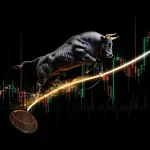Crafting Wealth: The Warren Buffett Strategy Unleashed
Jan 26, 2024
Introduction: The Warren Buffett Strategy: A Strategic Insight
Within the intricate tapestry of finance, the term “Warren Buffett Strategy” emerges as a guiding light of wisdom. This isn’t a specific set of economic practices but encapsulates Warren Buffett’s unique approach to economics and investment tactics. Picture it as peering into the financial landscape through the discerning lens of Warren Buffett, whose strategic finesse has propelled him to unparalleled financial heights.
Like a chess grandmaster, Buffett’s economic acumen involves methodically anticipating and navigating market moves. His philosophy, deeply rooted in pragmatism and sustained growth, starkly contrasts the prevailing ‘get-rich-quick’ mentality that often dominates investment discussions.
To grasp the essence of the Warren Buffett Strategy, it’s crucial to delve into Buffett’s principles. At the core of his philosophy is prioritising long-term investments over quick, fleeting gains. Unlike the allure of rapid profits, Buffett’s strategy encourages patiently nurturing investments, allowing them to thrive and compound over time.
Consider Berkshire Hathaway, the conglomerate epitomizing Buffett’s economic ethos. It has evolved into a global powerhouse, showcasing the effectiveness of Buffett’s strategy. The diversified portfolio, featuring stalwarts like Coca-Cola and Apple, is chosen for their enduring value and resilience across varying market conditions.
Furthermore, Buffett’s aversion to speculative frenzies and his talent for identifying companies with lasting competitive advantages contribute to the essence of the Warren Buffett Strategy. This deliberate approach mirrors a chess player meticulously selecting moves that position them for long-term success rather than quick tactical victories.
Within the Warren Buffett Strategy, investors are encouraged to cultivate a patient and discerning mindset, focusing on the intrinsic value of assets rather than succumbing to market volatility. Buffett’s success extends beyond mere financial gains; it’s a testament to the enduring power of informed, strategic decision-making in finance.
The Warren Buffett Strategy beckons investors to adopt a chess-like approach, playing the long game with calculated moves and an unwavering commitment to fundamentals. As we navigate the complexities of modern finance, embracing this perspective may be the key to unlocking sustained financial success in the years to come.
Warren Buffett Strategy: The Chess Game of Investing
Much like a grandmaster chess player, Warren Buffett is recognized for his strategic foresight in investing. His philosophy is primarily rooted in the principles of value investing, a concept he learned from his mentor, Benjamin Graham. This strategy involves buying stocks for less than their intrinsic value and holding onto them until they reach or exceed that value.
Imagine a chess game where each piece represents a company’s stock. A traditional investor might chase the queen, the most powerful piece, representing a hot stock. In contrast, Buffett, our chess grandmaster, may prefer to accumulate pawns and undervalued stocks, confident in their potential to reach the other side and become queens.
The Contrarian Approach: Understanding Mass Psychology
Buffett’s persona shifts from a grandmaster chess player to a contrarian regarding his crucial investment strategies. His famous adage, “Be fearful when others are greedy and greedy when others are fearful,” highlights this contrarian approach. This principle uses mass psychology, understanding the collective behaviour of investors and then choosing to act differently.
Consider the dot-com bubble of the late 1990s. While the masses were pouring money into internet companies, a contrarian investor, adopting Warren Buffett’s approach, would have avoided the overvalued stocks and instead invested in undervalued stocks in other sectors. When the bubble burst, the contrarian investor would have been shielded from the worst losses and could have even profited as their undervalued stocks appreciated.
Strategic Brilliance: Unveiling the Warren Buffett Investment Strategy
Warren Buffett, often called the “Oracle of Omaha,” commands respect in the investment realm for his consistent success and astute financial strategy. His investment philosophy, reminiscent of a chess grandmaster’s strategic prowess, has captivated and proven compellingly effective.
At the heart of Buffett’s investment philosophy lies value investing, a concept inherited from his mentor, Benjamin Graham. This strategy involves identifying stocks perceived as undervalued through fundamental analysis – a quest for hidden gems among companies whose actual worth isn’t reflected in their stock prices.
Visualize a chessboard where each piece signifies a company’s stock. A conventional investor might be drawn to the queen, symbolizing high-profile, trending stocks, chasing the allure of power and quick returns. Buffett, playing the same game, takes a distinct approach.
Buffett, akin to a seasoned chess grandmaster, recognizes the value in every piece on the board. Rather than fixating on the queen, he focuses on humble pawns – overlooked and undervalued. These pawns represent stocks that may be underpriced due to market conditions but boast solid fundamentals and growth potential.
Buffett assembles these undervalued stocks into his portfolio, exhibiting patience. Like a pawn evolving into a queen, these stocks, given time, have the potential to appreciate significantly, providing substantial returns.
This analogy encapsulates Buffett’s investment philosophy: patience, discipline, and a keen eye for value. He doesn’t chase quick, risky returns but invests in understandable, trustworthy companies at prices below their intrinsic value. Holding onto these investments for the long run, sometimes years, is integral until they reach or surpass their actual value.
Buffett’s philosophy is a reminder of the potency of patience and long-term investment in a landscape dominated by high-frequency trading and short-term gains. It’s a strategy devoid of complex jargon, appealing to technicians and tenured professors alike. The philosophy’s simplicity, wisdom, and proven effectiveness resonate universally.
Conclusion: Strategic Brilliance in the Warren Buffett Chess Game of Investing
The exploration into the Warren Buffett Strategy unveils a captivating journey through the mind of a legendary investor. Much like a grandmaster in chess, Buffett’s strategic foresight and contrarian approach offer valuable insights for individual investors seeking financial success.
In this intricate chess game of investing, Buffett’s focus on value investing is akin to carefully choosing each piece on the board. His preference for undervalued stocks, represented by humble pawns, over the allure of high-profile, trending stocks reflects a unique strategic brilliance.
Buffett’s contrarian stance, encapsulated in the famous adage about fear and greed, adds a layer of sophistication to his chess-like strategy. Understanding mass psychology and acting differently from the crowd, as seen during the dot-com bubble, showcases the depth of his strategic thinking.
The Warren Buffett Strategy emphasizes patience, discipline, and a keen eye for value—a philosophy that resonates across diverse audiences, from technicians to tenured professors. It’s a reminder of the power of long-term investment in a world often focused on short-term gains.
In this concluding move, we find that the wisdom from Buffett’s chess game of investing is not about becoming grandmasters ourselves but about applying strategic insights to make informed decisions. As we navigate the complexities of the financial landscape, embracing the simplicity and effectiveness of the Warren Buffett Strategy may well lead to the ultimate checkmate in the investing game.













